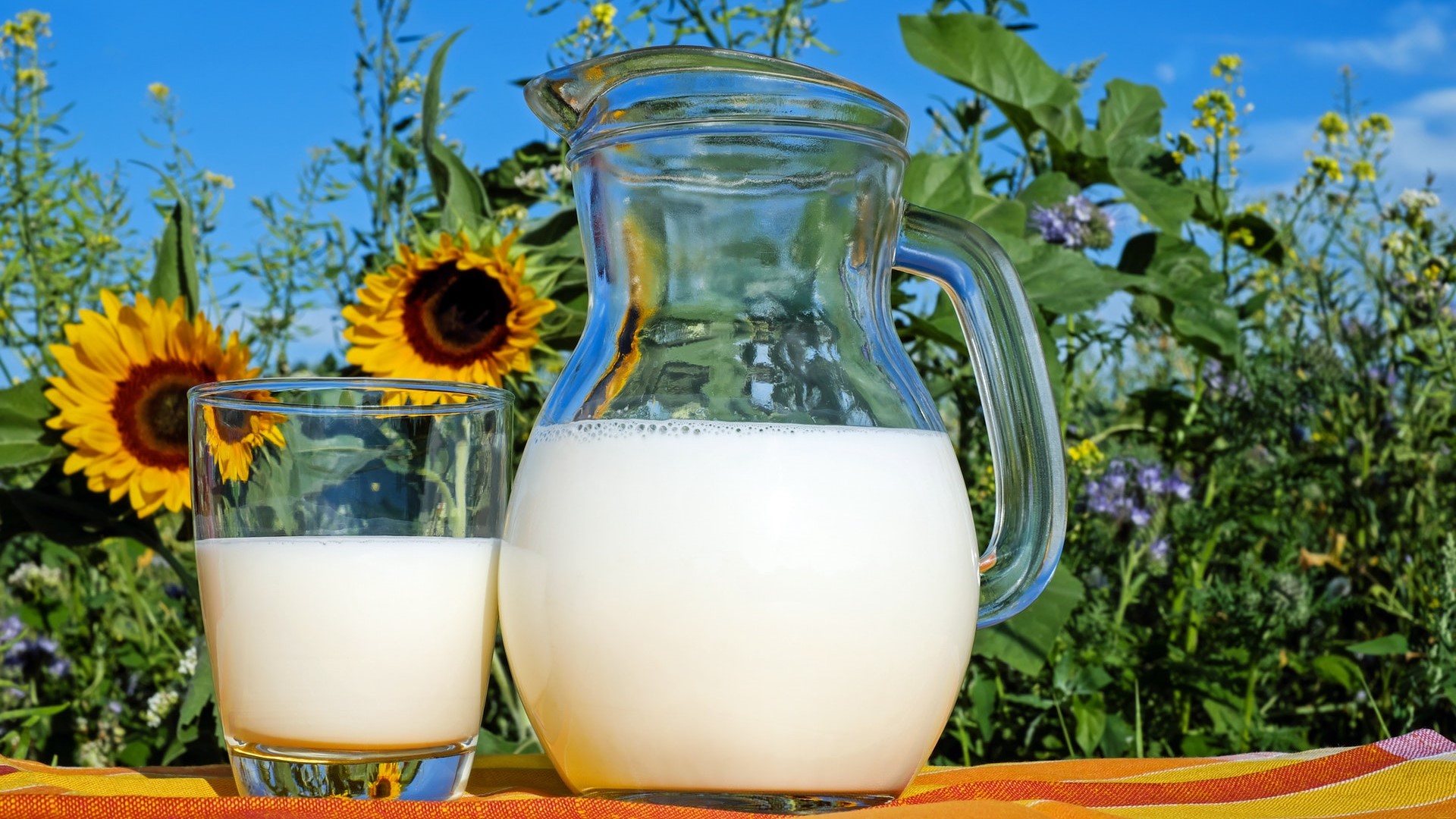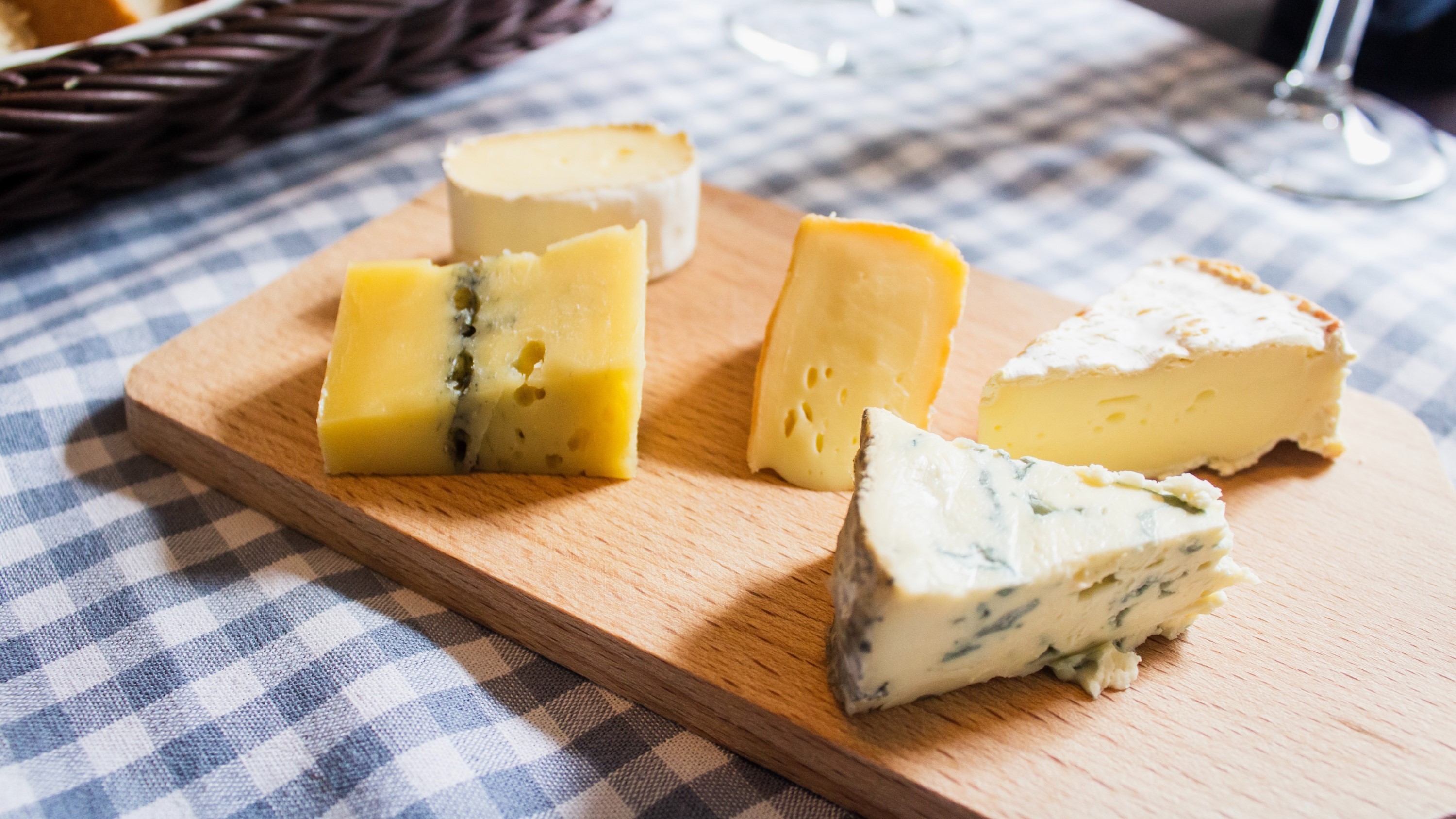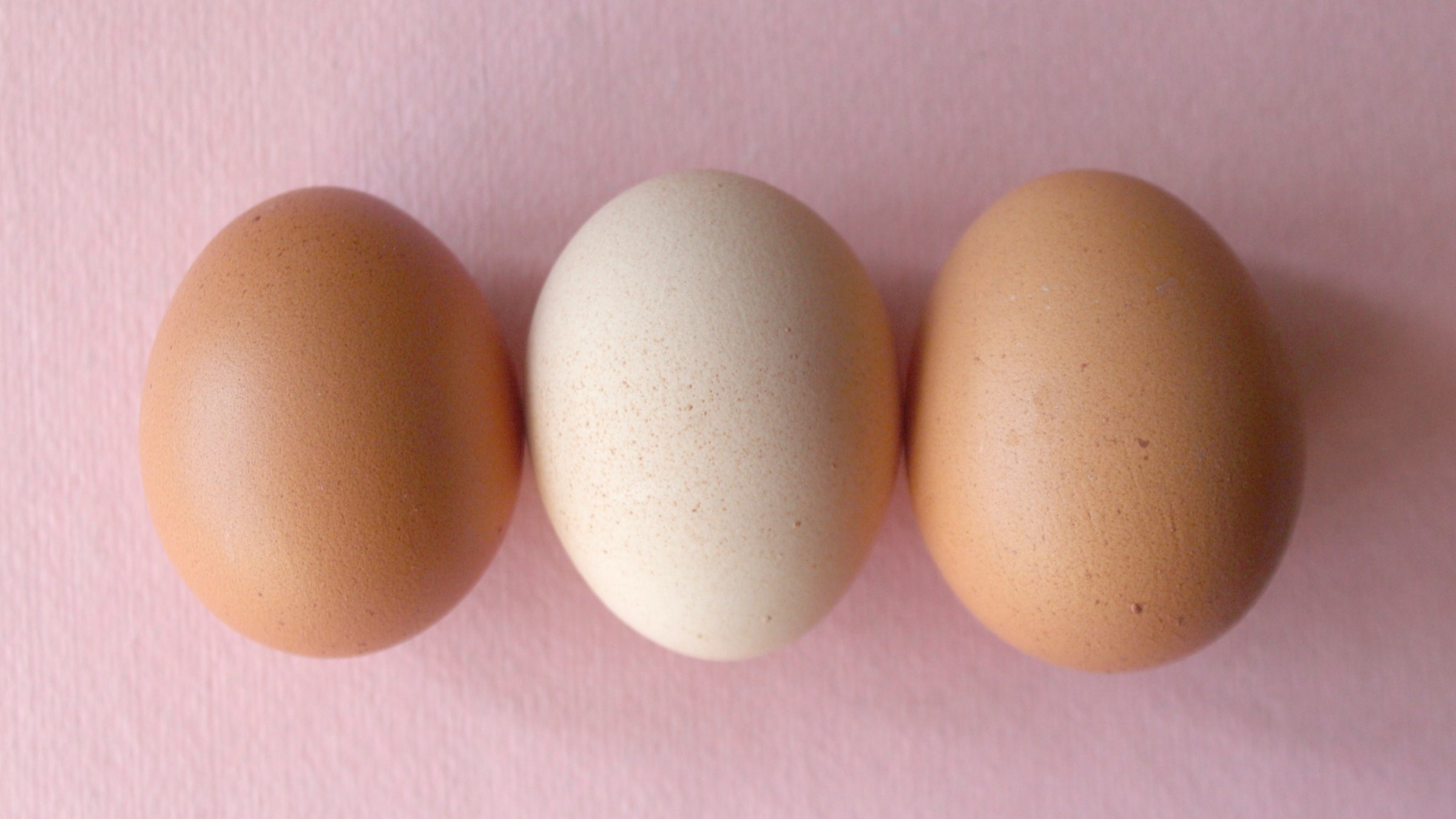May 2022: The Month in Review

Following an incredible start to the second quarter, May 2022 continued the cellular agriculture field’s momentum into the summer. Compared to previous months, this May featured a wide range of partnerships between cellular agriculture startups and the broader future food industry and a range of new startups entering the field.
From new partnerships to scale the future of food with cellular agriculture to new funding opportunities, we look at what happened this May 2022 in cellular agriculture.
Investments
VitroLabs
Beyond food, cellular agriculture can be used to create a wide range of products, including biomaterials like leather. VitroLabs announced that the company raised $46 million in Series A funding to develop leather sustainably. Based in California, VitroLabs is a biomaterial company that uses cellular agriculture to produce cell-cultured leather.
 VitroLab's cell-cultured leather
VitroLab's cell-cultured leather
By overcoming the need for cattle and the chemically intensive steps in leather tanning, cell-cultured leather could avoid and reduce the majority of carbon emissions associated with leather production and be more environmentally friendly.
According to the announcement, VitroLabs’ funding round was led by Agronomics and featured investments from Invest FWD, global luxury group Kering, Khosla Ventures, and Leonardo DiCaprio.
In addition to investing, Kering announced that the luxury goods company would continue its partnership with VitroLabs in supporting product quality testing, tanning, and finishing.
VitroLabs plans to use the funding round to expand its teams and scale its cell-cultured leather platform to pilot production. Last fall, VitroLabs moved into its new 45,000 sq. ft. facility designed for pilot production.
VitroLabs did not share a timeline on when the company plans to come to market. However, the company shared that it spent the last few years optimizing its tissue engineering platform to increase efficiency and optimize tissue production to obtain the look, feel, and performance of conventional animal leather at scale.
Imagindairy
Cell-cultured dairy startup Imagindairy announced raising an additional $15 million in seed funding to develop animal-free dairy proteins via acellular agriculture (also known as precision fermentation). Having previously raised $13 million in seed funding in November 2021, the seed extension brings Imagindairy’s total funding to $28 million.

The largest total seed funding round to date for a cellular agriculture food startup, Imagindairy plans to use the funding round to accelerate its R&D efforts and expand its team. The funding round was led by Target Global and featured a range of investors, including the Strauss Group and Emerald Technology Ventures.
CellX
Last week, Chinese cell-based meat startup CellX announced its $10.6 million Series A funding round. Based in Shanghai, CellX aims to use cellular agriculture to develop a range of cell-based meats, such as cell-cultured pork.
According to the announcement, the financing makes CellX the best-funded company to date in China. CellX’s funding round featured a range of investors, including new investors Joyvio Capital and SALT. In addition, previous investors Agronomics, Lever VC, and Better Bite Ventures participated in the Series A funding round.

The financing brings CellX’s total funding to $15.4 million. CellX previously raised $4.3 million in seed funding and $500,000 in pre-seed funding in September 2021 and December 2020, respectively.
Moving forward, CellX plans to use the funding round to expand its team and continue optimizing its technology platform to scale cell-based meat production.
Considering the growing interest from the Chinese government in the cellular agriculture field, it’s great to see CellX support the field’s progress in the country. CellX recently participated in the first Chinese Cellular Agriculture Forum and is an APAC Society for Cellular Agriculture member.
In April 2022, CellX and cell-cultured seafood startup Bluu Seafood announced a partnership to support global supply chain development as each company looks to expand to Europe and China, respectively.
Cubiq Foods
Cubiq Foods announced the startup raised $6 million in bridge funding from Cargill to bring its latest product to market. Based in Spain, Cubiq Foods aims to bring its first cell-cultured fat ingredient to market by 2023. Cubiq Foods plans to use the funding round to expand commercial and production operations in North America.

According to the announcement, Cargill’s investment is part of a strategic partnership that will include product development and a commercial agreement to market and sell Cubiq Foods’ products. In May 2020, Cubiq Foods raised €5 million from Blue Horizon Ventures and €12 million from Moira Capital Partners SGEIC in January 2019.
Melt & Marble
At the start of May, Swedish startup Melt & Marble raised €5 million in seed funding to develop cell-cultured fat. The company claims its cell-cultured fat product replicates the properties and functionalities of conventional beef fat, including its flavor, melting points, and the texture of conventional animal fats.
As the company looks to scale production, Melt & Marble aims to offer cell-cultured fats that can be fully adaptable for a range of meat alternatives beyond beef. The funding round was led by Lever VC and featured investments from Be8 Ventures, Good Startup, PINC, and Nordic FoodTech VC. In August 2021, Melt & Marble previously raised €750,000 in funding to develop its prototype.
Evolved Meats
Canadian startup Evolved Meats raised $2 million in seed funding to develop cell-based meat. Formerly known as CaroMeats, the seed round was led by Canadian meat corporate Maple Leaf Foods and featured investments from Big Idea Ventures, Garage Capital, and Saltagen Ventures.
Evolved Meats claims the startup can develop whole cuts of cell-based meat of various animal species without requiring scaffolding using its proprietary production platform. The new company aims to use the funding round to transition from prototyping to scaling its production platform.
Fermify
New acellular agriculture startup Fermify announced the company raised its pre-seed funding round to develop cell-cultured dairy. Fermify aims to produce dairy casein proteins with the same functional properties and nutritional profile as conventional cheese.
 The Fermify team
The Fermify team
Fermify aims to supply its technology platform to CPG companies and dairy producers by developing a fully automated platform to produce dairy proteins. The startup aims to launch an initial prototype this summer before beginning its first collaborations in the fall.
Fermify aims to sell its first units by mid-2023 to other companies to produce dairy proteins.
Mooji Meats
New startup Mooji Meats raised £3 million in seed funding to accelerate the development of its 3D printing technology platform for alternative protein meats. Licensing technology developed by Harvard, Mooji Meats is leveraging a new printing platform that allows hundreds of nozzles to print materials simultaneously.
The company claims this would result in more realistic plant-based whole cuts. Mooji Meats previously shared its platform can be used to develop whole cuts of both plant-based and cell-based meat products.
Space F Receives $15M Grant from Korean Government
South Korean cell-based meat startup Space F received a grant of $15 million to conduct research in the cellular agriculture field. Along with four partners, Space F received the funding as part of the Alychymist Project, an R&D initiative supported by the South Korean government.
 Space F's cell-based meat prototype
Space F's cell-based meat prototype
The research project will focus on the development and industrialization of cultured meat production equipment to scale the field. The research funding will be shared with Daesang Corporation, Lotte Fine Chemical, Seoul National University, and Sejong University.
One of the research partners, Daesang Corporation, previously signed a strategic agreement with Space F. Daesang also secured a working agreement with Xcell Therapeutics to supply animal and serum-free cell culture growth media.
In February 2022, Space F showcased its latest cell-based meat prototypes. Space F raised $6.3 million in Series A funding in August 2021.
Change Foods Receives Grants from the Australian Government
Cell-cultured dairy company Change Foods received multiple grants from the Australian government. At the start of May, the startup received a $1 million AUD (USD 700,000) grant from the Australian government to explore upcycling Queensland sugarcane fiber into feedstock to produce its cell-cultured dairy proteins.

Awarded as part of the Securing Raw Materials Program, the research grant will be a collaboration between Change Foods and the Queensland University of Technology to explore how to use sugarcane fiber in the startup’s cell culture media formulation.
In addition, Change Foods received an additional grant of $3.1 million AUD as part of the Queensland University of Technology’s Trailblazer Universities Food and Beverage Accelerator. The grant aims to accelerate Change Foods’ ongoing research collaboration with the Queensland University of Technology, such as leveraging its facilities and pilot plant facility.
While founded in Australia, Change Foods is based in both the US and Australia, with a headquarters in California. In February 2022, Change Foods raised an additional $12 million in seed funding, one of the largest to date in the field.
Canadian Government Grants Funding for Cellular Agriculture Startups
What will the future of food look like in Canada? The Canadian Food Innovation Network and Ontario Genomics announced funding of more than $900,000 for startups and projects. The funding was through the AcCELLerate-ON competition, the first regional cellular agriculture competition in Ontario, Canada.
The recipients include cell-cultured seafood startup Cell Ag Tech and Ardra Inc, which aims to use fermentation to produce heme. Other recipients include cell-based meat startups Evolved (formerly Caro Meats) and MyoPalate (in partnership with Dr. Michael Garton at the University of Toronto). The winners were selected on their potential to drive food innovation and address industry scaling challenges.
Eat Just Partners to Scale Cell-Based Meat Bioreactors and Media
Alternative protein company Eat Just announced a partnership with ABEC, a leading bioprocess engineering and manufacturing company, to build the world’s largest bioreactors to produce cell-based meat. Based in California, Eat Just and its subsidiary, Good Meat, became the first company to receive regulatory approval to bring its cell-based chicken product to Singapore in December 2020.
 Rendering of future cell-based meat facility by Good Meat
Rendering of future cell-based meat facility by Good Meat
Eat Just announced an exclusive multi-year agreement with ABEC to build ten 250,000-liter bioreactors to produce cell-based beef and chicken. At four stories tall, these bioreactors would be the largest bioreactors ever built for both avian and mammalian cell cultures.
Scaling production is a major challenge for the cell-based meat field, and that’s undoubtedly true for bioreactor development. An essential part of the cell-based meat supply chain, a bioreactor is a chamber that houses the cell culture media and cells to promote the growth and differentiation of cell lines to cell-based meat.
To date, no large-scale bioreactors exist to accommodate the commercial scale for cell-cultured meat. As more companies look to come to market and bring down costs, the development of large-scale bioreactors will be paramount for the field’s viability.
According to the announcement, the 250,000-liter bioreactors would be for a future Good Meat commercial-scale facility that could produce up to 13,000 tonnes of cell-based meat annually.
In addition, ABEC will develop a 6,000-liter bioreactor for Good Meat’s Singapore facility. Scheduled to begin production in early 2023, the companies claim that this bioreactor for Singapore would be the largest cultured meat bioreactor installed to date.
 Good Meat's cell-based chicken
Good Meat's cell-based chicken
Moving forward, Eat Just aims to finalize the site selection for its commercial facility in the US in the next three months. The company aims for the proposed US facility to be operational by late 2024, reaching production levels of 11,800 tonnes of cell-based meat per year by 2026 and 13,700 tonnes annually by 2030.
In addition to the ABEC partnership, Eat Just announced a joint development agreement with food corporate Archer Daniels Midland (ADM). According to that announcement, ADM will help Good Meat create an optimized cell culture growth media and improve the taste and texture of its cell-cultured meat products.
The partnership also included an undisclosed investment by ADM, but Eat Just did not disclose any details. In November 2018, ADM partnered with cell-cultured dairy company Perfect Day to scale the production of its animal-free dairy proteins.
Perfect Day Partners with Tomorrow Foods to Launch Bored Cow
Perfect Day announced that the cell-cultured dairy company partnered with Tomorrow Farms to launch a new flavored milk using its animal-free dairy proteins. Called Bored Cow, the brand is the first product launch from Tomorrow Farms, a new CPG company that works with food tech innovators to create products. The new product will come in Chocolate, Vanilla, and Strawberry flavors, and a plain variety will be available later in the summer.
 Bored Cow featuring Perfect Day's cell-cultured dairy proteins
Bored Cow featuring Perfect Day's cell-cultured dairy proteins
Tomorrow Farms shared that the Bored Cow product line will initially sell online directly to consumers and retail for $40 for a 12-pack of flavored milk. The brand will start with online sales and aims to be available in some stores by the fall.
MeaTech Partners with Enough Food
Early in May, cell-based meat company MeaTech 3D announced that its cell-cultured fat subsidiary, Peace of Meat, signed a joint development agreement with mycoprotein company Enough Food.
As part of the agreement, the two companies will work together to develop hybrid meat products combining Peace of Meat’s cell-cultured avian fat with Enough Food’s fungi-derived mycoprotein to develop a hybrid alternative protein meat product.
 MeaTech's proposed pilot plant in Belgium for Peace of Meat
MeaTech's proposed pilot plant in Belgium for Peace of Meat
By combining their products, the companies believe that Peace of Meat’s cell-cultured avian fat will provide the flavor, aromas, and texture of conventional meat, while Enough Food’s mycoprotein will add nutritional value with its protein and fiber content.
While there is no release date yet for MeaTech’s hybrid product with Enough Foods, the announcement continues a solid start to the year for the company. In March 2022, MeaTech announced plans to construct a pilot plant and R&D facility in Belgium for Peace of Meat.
Ginkgo BioWork and Evo Foods Partner to Develop Cell-Cultured Egg Proteins
Synthetic biology company Ginkgo Bioworks partnered with Evo Foods to create and scale cell-cultured egg proteins via acellular agriculture (also known as precision fermentation).
While Evo Foods focuses on producing plant-based egg products in India, the company shared an interest in incorporating cell-cultured egg proteins into its products. The company is working closely with Ginkgo’s scientists to develop the proteins.

By looking to incorporate cell-cultured egg proteins into its products, Evo Foods’ partnership with Ginkgo is one of the first by a plant-based company to explore cell-cultured proteins beyond meat and dairy proteins to incorporate into their products.
Previously, The Every Company has worked with several partners to include its cell-cultured egg proteins in various products. In March 2022, The Every Company launched its cell-cultured egg white product, Every EggWhite, as the world’s first animal-free egg white product.
Ginkgo Bioworks spin-off Motif FoodWorks also leverages Ginkgo’s microbe platform to produce acellular animal proteins to complement the flavor and texture of plant-based products.
BioMeat and Volcani Institute Launch E-FISHient to produce Cell-cultured Tilapia
Cell-cultured tilapia, anyone? Investment firm BioMeat and The Volanci Institute, a research arm of the Israeli Ministry of Agriculture, announced the launch of E-FISHient Protein as a joint startup to develop cell-cultured tilapia fish meat. According to the agreement, BioMeat will act as the controlling partner in the arrangement with 76% of the shares and manage all business development activities and supply operational funding for the initial years of the project. The Volcani Institute will take 10% of the shares and provide facilities and the workforce.
UK University Consortium to Explore Impact on Livestock Farming
One of the key questions around the future of food with cellular agriculture is its impact on livestock agricultural farmers and players. Led by the Royal Agriculture University in the UK, 20 farming groups, scientists, and startups aim to look in-depth into the effects that cultured meat may or may not have on farm businesses and landscapes.

The research group aims to explore a range of questions, including which livestock sectors could be most impacted, the possibility of brewing cell-cultured meat on farms, and what agricultural inputs could be used to feed the cells. Members in the research group include startups like Aleph Farms and Multus Media and nonprofits like Good Food Institute Europe and New Harvest.
Gelatex and Matrix FoodTech Open Facilities to Develop Scaffolding for Cell-Based Meat
In order to scale and come to market, one area that the cellular agriculture field needs to address is scaffolding production. In Tallinn, Estonia, Gelatex recently opened a new facility to develop its edible scaffolding via its high throughput nanofiber spinning tech. According to Gelatex, the company can produce up to 5 kilograms per hour of its edible scaffolding material and is currently in touch with 30 cell-based meat companies.
Similarly, Matrix FoodTech (previously Matrix Meats) just opened a wet lab in Ohio to accelerate the production of multiple scaffolding projects for cell-based meat companies via electrospinning. Interestingly, both companies can develop scaffolding material from plant-based components, such as corn protein.
Profuse Technology Aims to Enhance Cell-Based Meat Production Capacity
Along with scaling production, cell-cultured meat companies will need to make their cells proliferate more efficiently. New startup Profuse Technology claims to have developed technology that can accelerate the muscle fiber production process and enhance the production capacity of cell-based meat.
While only tested in the lab setting, the startup claims it can shorten the muscle tissue development progress from 7 days to 3 days while increasing protein content by 4.5 fold. Next, the startup must explore how its media supplement solution will work at larger scales beyond a lab setting. Profuse Technology was founded during the summer of 2021 based on technology developed at the Weizmann Institute of Science in Rehovot, Israel.
Orbillion Aims for Price Parity in 2026
Cell-based meat company Orbillion Bio announced that the startup aims to reach price parity with conventional meat in 2026 and commodity pricing for beef in 2030. Considering the startup’s focus on making their cell-based meat products accessible, ensuring prices on par with conventional meat will ensure more people can access the product. Orbillion Bio shared that its first product will be a cell-based wagyu beef.
 Orbillion Bio founding team
Orbillion Bio founding team
In addition, the company also shared that it has raised $9.5 million in funding to date. In April 2021, Orbillion Bio raised $5 million in seed funding.
CellulaREvolution Rebrands to CellRev
CellulaREVolution announced the company rebranded to CellRev as it advances how cell-based meat can grow at scale through its bioprocessing technologies. Based in Newcastle, United Kingdom, CellRev focuses on developing a continuous bioprocessing system that the company believes can deliver three times the output compared to batch bioprocess technologies for cell-cultured meat. Currently, no large-scale bioreactors exist that would support scaling the production of cell-based meats to get the field from lab to market. In March 2022, CellRev successfully raised £1.75 million to continue developing its enabling technology.
Mermade Seafoods Launches to Produce Scallops
New cell-cultured seafood startup Mermade Seafoods recently launched and claims to be the first company to use aquaponics in the cellular agriculture field. The company aims to develop a new market category of cytoponics by co-culturing algae and its cell-cultured seafood to absorb waste ammonia from the seafood cell cultures.
Mermade shared that the company can remove 60% of ammonia from its cell culture media waste using cytoponics technology. The company first aims to develop cell-cultured scallops.
Mewery Explores Microalgae as Cell Culture Media for Meat Production
Based in Brno, the new Czech startup Mewery claims to be the first European startup focused on developing cell-cultured pork meat using a proprietary microalgae platform. By using microalgae to replace costly animal-derived growth factors, Mewery aims to reduce the cost of producing its cell-based meat by 70%. Pending regulatory approval, Mewery aims to enter the market by 2026. Mewery completed the Big Idea Ventures accelerator program in the US.
3D Bio-Tissues Goes Public with Reverse Merger with BSF Enterprise
Special purpose acquisition company (SPAC) BSF Enterprise announced the reverse takeover of 3D Bio-Tissues, a tissue engineering company in the UK focusing on developing cell-cultured meat as well as human skin, corneas, and other skin-care applications for £2.5 million. According to the announcement, one of 3D Bio-Tissues' goals is to produce the UK’s first cell-based meat in the next 12 months. The company also developed the product City-mix, a serum-free media for culturing muscle and fat cells. One of the 3D Bio-Tissues co-founders, Professor Che Cannon, is also a co-founder of CellRev.
Motif FoodWorks to Launch own Plant-Based Brand
After launching its cell-cultured myoglobin protein Hemami last year as an ingredient for plant-based meat products, Motif Foodworks announced the launch of its own plant-based meat product line. Motif’s MoBeef plant-based burger patties are currently available, and its MoBeef plant-based ground and MoPork will be available later this year in the US. At the same time, Motif also announced an undisclosed investment from Robert Downey Jr.’s FootPrint Coalition Ventures into the company.
Conclusion

From a range of investments in cellular agriculture companies exploring leather, meat, dairy, and fats, May marked a solid start to the 2022 summer for the cellular agriculture field. Along with the investment announcements, this May featured many partnerships to grow the sector.
By looking to produce the largest bioreactors to date for cell-based meat, Eat Just’s partnership with ABEC will be one that many players in the field will follow. Many companies have previously claimed they would like bioreactors at massive scales to be commercially viable, and Eat Just’s partnership is the first publicly disclosed one to pursue that.
Many people will watch the outcome of Eat Just’s scaling plan to see how viable it would be to grow cells at such a large scale for the future of cell-cultured meats and seafood.
In addition, as the first partnership between a cell-cultured fat company and a fungi-derived protein company, the joint development agreement between Meatech-subsidiary Peace of Meat and Enough Food highlights a key pathway to market for many cell-cultured fat companies.
By partnering with other players in the broader alternative protein field, cell-cultured fat companies can use their products as ingredients to improve the taste and flavor profile of existing meat alternatives.
Previously, in October 2021, Chinese alternative protein company Herotein announced a strategic partnership with cell-cultured fat company Mission Barns to develop a hybrid plant- and cell-based products for China.
Stay connected with CellAgri
Join our mailing list to receive the latest news and updates weekly from the cellular agriculture industry. Your information will not be shared.



